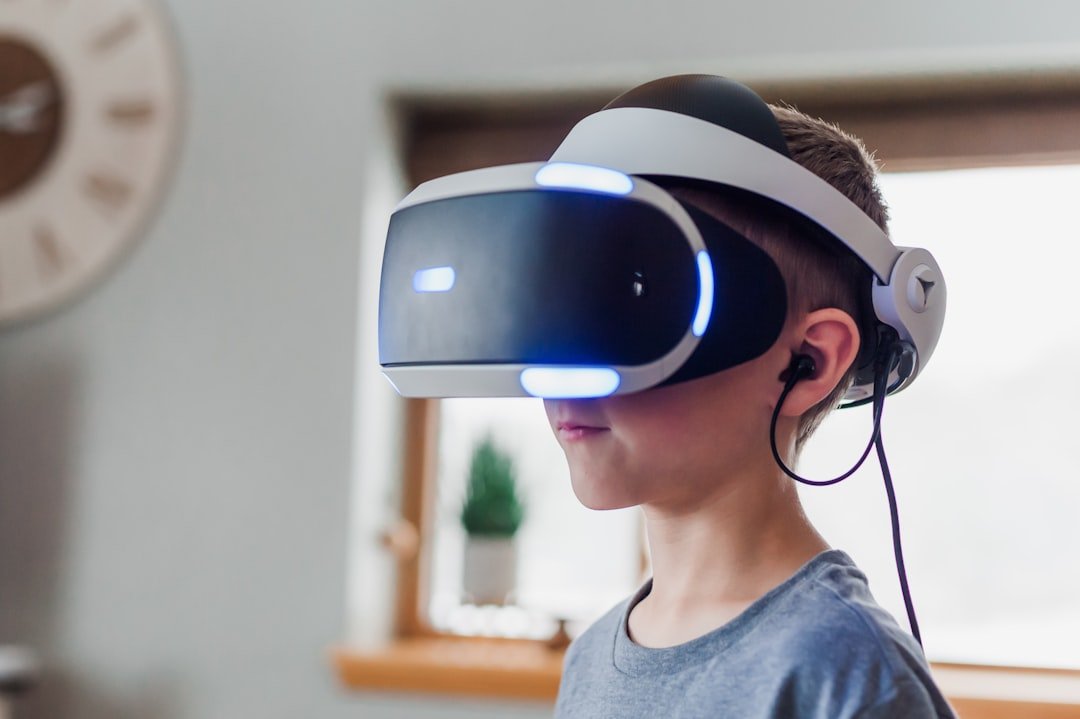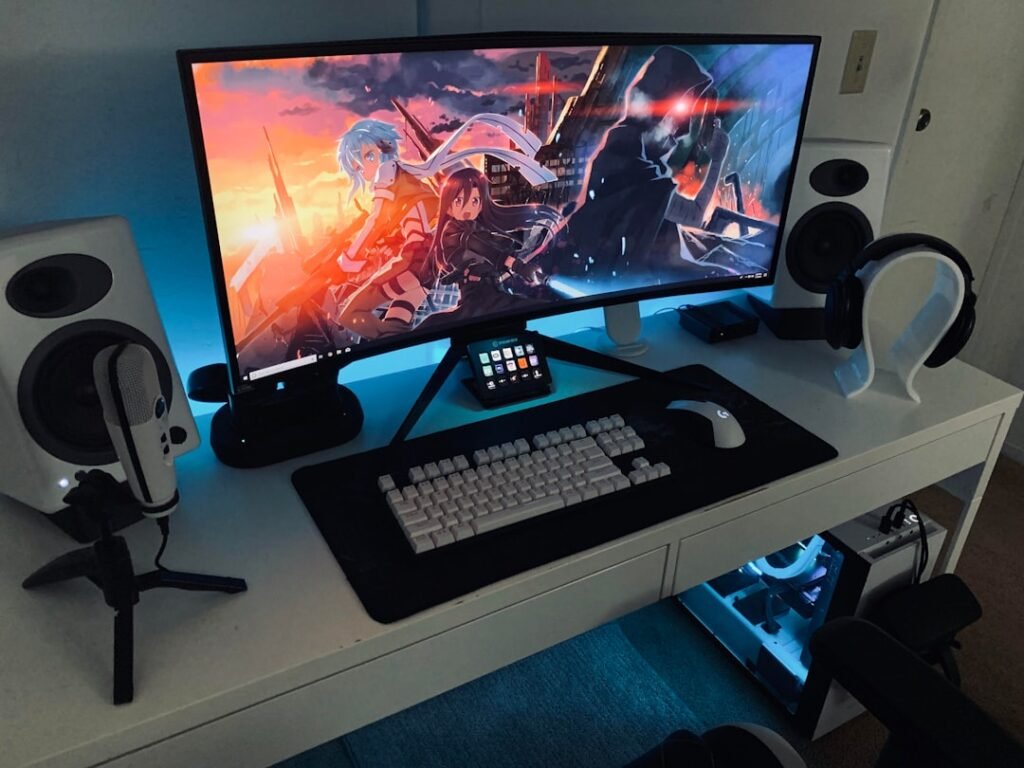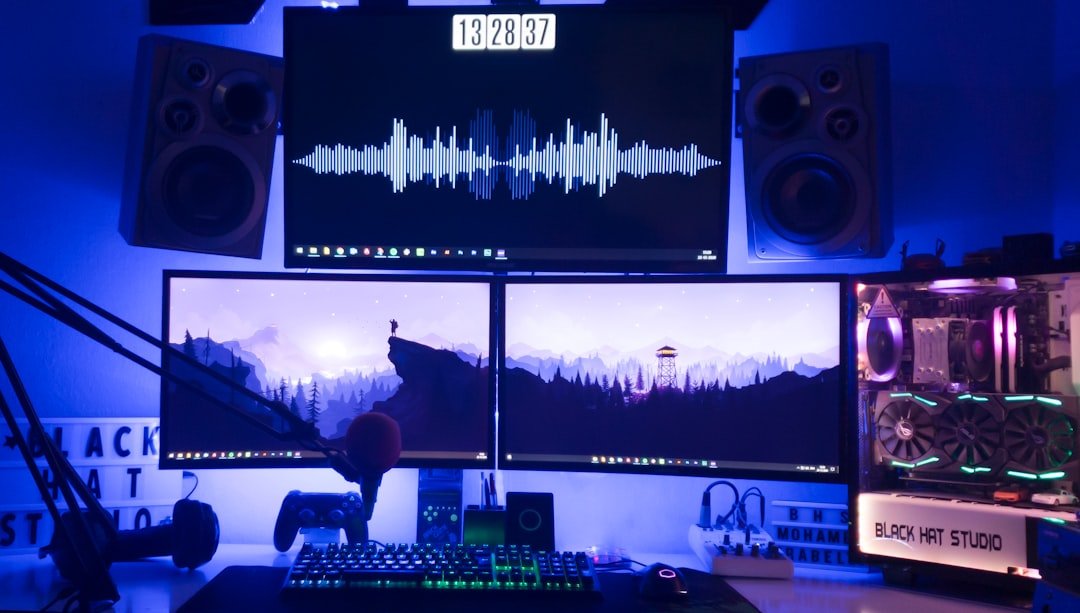Now Reading: The Rise of Gaming Therapy: Video Games as Mental Health Tools
-
01
The Rise of Gaming Therapy: Video Games as Mental Health Tools
The Rise of Gaming Therapy: Video Games as Mental Health Tools

As I delve into the world of gaming therapy, I find myself captivated by the intersection of technology and mental health. Gaming therapy, a relatively new concept, harnesses the engaging nature of video games to promote psychological well-being. It is fascinating to see how this innovative approach has emerged as a viable option for individuals seeking alternative methods to traditional therapy.
The idea that video games, often viewed as mere entertainment, can serve as therapeutic tools is both intriguing and promising. In recent years, the stigma surrounding mental health has begun to dissipate, allowing for more open discussions about various treatment modalities. Gaming therapy stands out as a unique approach that appeals to a diverse audience, particularly younger generations who are already immersed in the digital landscape.
By integrating gaming into therapeutic practices, mental health professionals can create a more relatable and enjoyable environment for their clients, ultimately fostering a stronger connection between therapist and patient.
Key Takeaways
- Gaming therapy is a growing field that uses video games as a tool for mental health treatment.
- Gaming therapy can improve cognitive function, emotional regulation, and social skills, and reduce stress and anxiety.
- Video games are used in therapy through various methods, including biofeedback, virtual reality, and interactive storytelling.
- The science behind gaming therapy shows that it can stimulate the brain, improve mood, and provide a sense of accomplishment.
- Popular video games used in therapy include “Minecraft,” “Journey,” and “Never Alone,” among others.
The Benefits of Gaming Therapy for Mental Health
Engagement and Motivation
One of the most significant advantages of gaming therapy is its ability to engage individuals in a way that traditional therapies may not. Video games often provide an immersive experience that can capture attention and motivate players to participate actively in their healing process.
Moreover, gaming therapy can serve as a safe space for individuals to explore their emotions and confront challenges. Through gameplay, players can navigate complex scenarios that mirror real-life situations, allowing them to practice coping strategies and problem-solving skills in a controlled environment.
Experiential Learning for Mental Health Recovery
This experiential learning can be particularly beneficial for those struggling with anxiety, depression, or trauma, as it provides an opportunity to process feelings without the pressure of immediate real-world consequences.
How Video Games are Used in Therapy

In my exploration of how video games are utilized in therapy, I have discovered that the applications are as diverse as the games themselves. Mental health professionals often tailor their approach based on the specific needs of their clients, selecting games that align with therapeutic goals. For instance, some therapists may use role-playing games to help clients develop social skills and improve communication.
These games encourage players to interact with others in a virtual setting, fostering connections that can translate into real-life relationships. Additionally, video games can be employed to teach mindfulness and relaxation techniques. Games designed with calming visuals and soothing soundscapes can guide players through meditation exercises or breathing techniques, helping them manage stress and anxiety.
By incorporating these elements into gameplay, therapists can create a holistic experience that addresses both mental and emotional well-being.
The Science Behind Gaming Therapy
The scientific foundation of gaming therapy is rooted in various psychological theories and principles. As I delve deeper into this field, I find it essential to understand how gaming can influence cognitive processes and emotional regulation. Research has shown that video games can stimulate the brain’s reward system, releasing dopamine and promoting feelings of pleasure and satisfaction.
This neurochemical response can enhance motivation and reinforce positive behaviors, making gaming an effective tool for therapeutic interventions. Furthermore, studies have indicated that gaming can improve cognitive functions such as attention, memory, and problem-solving skills. These cognitive benefits are particularly relevant for individuals with conditions like ADHD or traumatic brain injuries.
By engaging in gameplay that challenges their cognitive abilities, players can experience improvements in focus and mental agility, which can be invaluable in their overall recovery journey.
Popular Video Games Used in Therapy
As I explore the landscape of gaming therapy, I am intrigued by the variety of video games that have gained popularity within therapeutic settings. Titles like “Journey” and “Celeste” have been recognized for their ability to convey emotional narratives while encouraging players to confront personal challenges. These games often incorporate themes of resilience and self-discovery, making them ideal for therapeutic exploration.
Another noteworthy example is “Minecraft,” which has been utilized in therapy to promote creativity and social interaction. The game’s open-world format allows players to collaborate on projects or engage in problem-solving tasks together, fostering teamwork and communication skills. Such games not only provide entertainment but also serve as valuable tools for personal growth and development.
The Impact of Gaming Therapy on Different Mental Health Conditions

Addressing Social Anxiety
For individuals grappling with social anxiety, virtual environments can offer a less intimidating space to practice social interactions without the fear of judgment. This gradual exposure can help build confidence and reduce anxiety over time.
Countering Depression
Gaming therapy has shown promise in addressing symptoms of depression.
Improving Mood and Outlook
By setting achievable goals within the game, players can experience small victories that contribute to an overall improvement in mood and outlook.
The Role of Gaming Therapy in Stress and Anxiety Management
In my exploration of stress and anxiety management through gaming therapy, I have come to appreciate how video games can serve as effective coping mechanisms. The immersive nature of gaming allows individuals to escape from their daily stressors temporarily, providing a much-needed respite from overwhelming thoughts and feelings. This form of distraction can be particularly beneficial during moments of acute stress or anxiety.
Moreover, certain games are specifically designed to promote relaxation and mindfulness. These titles often incorporate calming visuals and soundscapes that encourage players to focus on the present moment. By engaging with these games, individuals can learn valuable techniques for managing stress that they can apply outside the gaming environment.
Gaming Therapy as a Tool for Cognitive Rehabilitation
As I delve into the realm of cognitive rehabilitation, I find it fascinating how gaming therapy can play a pivotal role in this process. For individuals recovering from brain injuries or cognitive impairments, video games offer a unique avenue for rehabilitation. Many games are designed to challenge cognitive skills such as memory, attention, and problem-solving, providing players with opportunities to practice and improve these abilities.
In my observations, therapists often use gaming as part of a comprehensive rehabilitation plan tailored to each individual’s needs. By incorporating gameplay into therapy sessions, professionals can create engaging exercises that motivate clients to work on their cognitive skills while enjoying the process. This dual benefit of entertainment and rehabilitation makes gaming therapy an appealing option for both clients and therapists alike.
The Future of Gaming Therapy in Mental Health Treatment
Looking ahead, I am optimistic about the future of gaming therapy in mental health treatment. As technology continues to advance, we are likely to see even more innovative applications of video games in therapeutic settings. Virtual reality (VR) is one area that holds immense potential; it allows for immersive experiences that can simulate real-life scenarios in a controlled environment.
This could be particularly beneficial for exposure therapy or social skills training. Additionally, as research continues to validate the effectiveness of gaming therapy, I anticipate greater acceptance within the mental health community. More therapists may begin to incorporate gaming into their practices as they recognize its potential benefits for clients across various demographics.
This shift could lead to a more holistic approach to mental health treatment that embraces technology as a valuable ally.
Criticisms and Controversies Surrounding Gaming Therapy
Despite its many advantages, gaming therapy is not without its criticisms and controversies. Some skeptics argue that video games may promote escapism rather than addressing underlying issues directly. They contend that relying on gaming as a coping mechanism could hinder individuals from developing essential life skills needed for real-world challenges.
This perspective raises important questions about the balance between using gaming as a therapeutic tool while ensuring it does not become a substitute for traditional therapeutic methods. Furthermore, concerns about screen time and its impact on mental health cannot be overlooked. As someone who values moderation in all things, I recognize the importance of setting boundaries around gaming use.
It is crucial for both therapists and clients to approach gaming therapy with mindfulness, ensuring that it complements rather than replaces other forms of treatment.
How to Incorporate Gaming Therapy into Mental Health Treatment
Incorporating gaming therapy into mental health treatment requires careful consideration and collaboration between therapists and clients. As I reflect on this process, I believe it is essential for mental health professionals to assess each client’s unique needs and preferences before introducing gaming into their treatment plan. Open communication is key; discussing the potential benefits and limitations of gaming therapy can help clients feel more comfortable with this innovative approach.
Additionally, therapists should stay informed about the latest developments in gaming therapy research and best practices. By continually expanding their knowledge base, they can make informed decisions about which games may be most beneficial for their clients’ specific goals. Ultimately, the successful integration of gaming therapy into mental health treatment hinges on a thoughtful and personalized approach that prioritizes the well-being of each individual.
In conclusion, my exploration of gaming therapy has revealed its potential as a transformative tool for mental health treatment. With its ability to engage individuals in meaningful ways while addressing various psychological needs, gaming therapy represents an exciting frontier in the field of mental health care. As we continue to navigate this evolving landscape, I remain hopeful about the positive impact that gaming therapy can have on countless lives.
In addition to the rise of gaming therapy, another interesting article on Gamers.co discusses the importance of game soundtracks and how music can significantly impact the gaming experience. The article titled

















